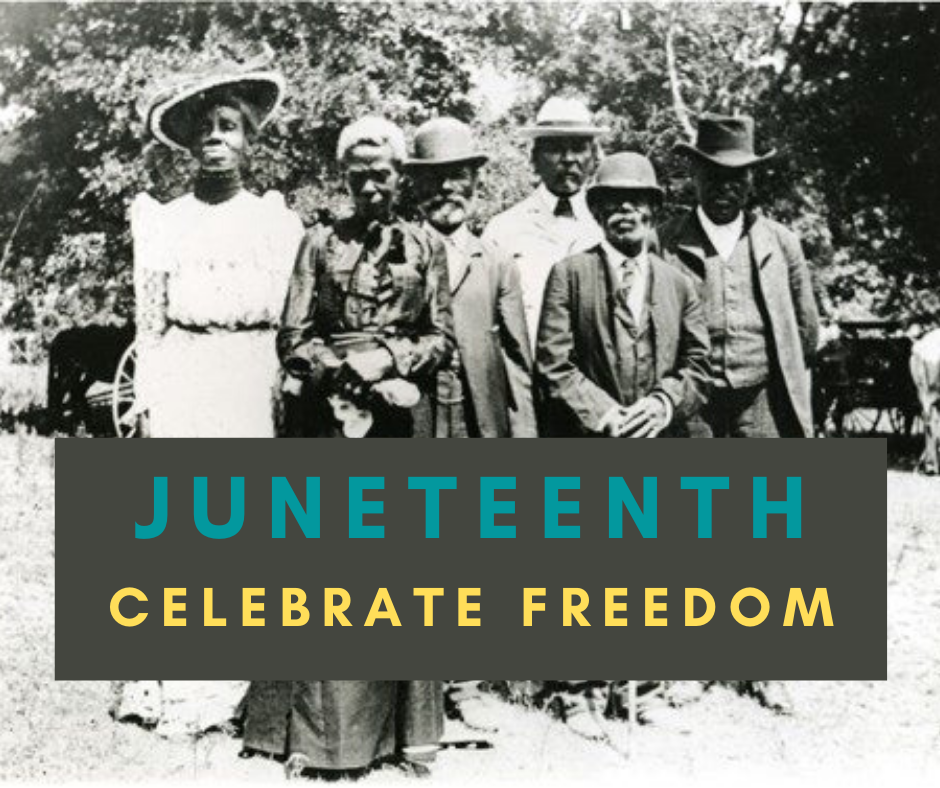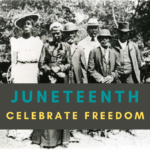Two and a half years after President Abraham Lincoln signed the Emancipation Proclamation, news arrived to slaves in Galveston, TX that papers releasing them from lives of torture, subjugation, and inequality had been signed.
They were now free to live the lives they had only crafted in their dreams.
Or were they?
On what is known as Juneteenth, 155 years later, the descendants of those who were forced into lives of indentured servitude are still fighting to obtain the “absolute equality of rights…” that were referenced in General Order Number 3. While the legality of slavery has been abolished, as time has progressed, this act of controlling black people has manifested itself in additional forms of bondage such as Jim Crow laws, domestic genocide, and mass incarceration.
With the current uprising of a collective of people bucking the system insisting on changes that still haven’t been granted since that “glorious” day in the 1800s, the importance of Juneteenth and the revolution it should’ve produced stand in the forefront poised to see what happens next.
For black people, this is our Independence Day.
In researching Juneteenth, I’ve learned the cultural significance goes beyond the “restoration of rights” and hangs its hat on a hope that’s sustained my people since our involuntary arrival on this land. In the years following Major General Gordon Granger’s announcement that the war was over and black people were granted lives “without restrictions,” many would return to Galveston yearly to commemorate this date.
As the ancestors gathered for the first family reunions, there was a focus on reassurance, prayer, education, self-improvement, and love. Although conditions still weren’t ideal, the idea of their “freedom” being documented in history was a cause for celebration and reflection.
While many navigated to northern states to escape the deeply-rooted racism that was still present, many made treks to other southern states to reunite with loved ones in a collective attempt to repair their family nucleus that had been shredded for decades.
When former slaves began to opt for more traditional classroom settings for their children and the Great Depression of the 1920s began to shape the workforce and educational approach, the importance of the black Independence Day began to fade into a distant memory. With the past still producing trauma and the present attempting to sweep what had taken place under the rug, the future was destined to offer us a recollection of events that hid the absolute truth from the light.
It’s as if the day we were declared “free” doesn’t matter.
And maybe it doesn’t because we’re still fighting to be seen, heard, recognized as equals.
Still fighting to be free.
But what do you see happening right now?
There’s no way you can’t see it.
We’re in the middle of a revolt.
A rebellion.
An upheaval.
It’s being looped on television, broadcasted live on social media, and documented through pictures, murals, marches.
There are chants of “Black Lives Matter.”
There are chants of “No Justice, No Peace.”
There are chants of “Power to the People.”
There’s an energy of fatigue, frustration, fury, disbelief, determination, and exhaustion that has translated into millions of voices unifying to overcome racial injustices, systemic oppression, and economic disparities that were established centuries ago upon the principle of white supremacy.
The same white supremacy that made slavery legal.
The same white supremacy that equates a southern flag with heritage.
The same white supremacy that implemented innovative tactics to repress black people.
These roots are so deeply entrenched in this country that it’s taken a century and a half for many ancestors of the oppressors to finally admit, “Ah. I see it now.”
Now, this shift isn’t new but the push you see behind it is. In recent years, the mainstream spotlight has highlighted what many of us already knew – the black community is full of amazingly, dope individuals doing amazingly, dope things. There’s been a push to buy black, support black, uplift black. T-shirts noting our influence are in abundance. Instagram accounts dedicated to showcasing our many talents, accomplishments, and groundbreaking achievements are followed by hundreds of thousands. Athletes, musicians, coaches, writers, educators, and directors are boldly living unapologetically black.
And it’s fitting for a time such as this.
While this spotlight is shining bright, there must be a refusal to let this upcoming Juneteenth get lost in all the hurt, pain, and rage. This Juneteenth is special. This Juneteenth is different. This Juneteenth will carry with it a spirit that is rooted in our ancestors’ ability to keep pressing forward believing better days are coming.
To seize what’s been taken, the black community will have to continue to fight to receive what we rightfully deserve.
What’s supposed to be ours.
What was promised to us in 1865.
This year, Juneteenth cannot and will not be just another day on the calendar.
It won’t be just another day to remind black people of their “freedom.”
It won’t be just another day to remind us “how far we’ve come.”
What it will be and what it shall always be remembered as is the day we were all officially declared free while still being chained.
Amongst hope.
The marathon continues.
 Kassaundra Shanette Lockhart is a freelance writer who party hops daily and is thankful for all those on the frontlines working to slow down this pandemic. God bless you!
Kassaundra Shanette Lockhart is a freelance writer who party hops daily and is thankful for all those on the frontlines working to slow down this pandemic. God bless you!


There are no comments
Add yours